The Red Cross Week in Polish territories was already celebrated before the Polish Red Cross (PCK) was officially established, which was over 100 years ago.
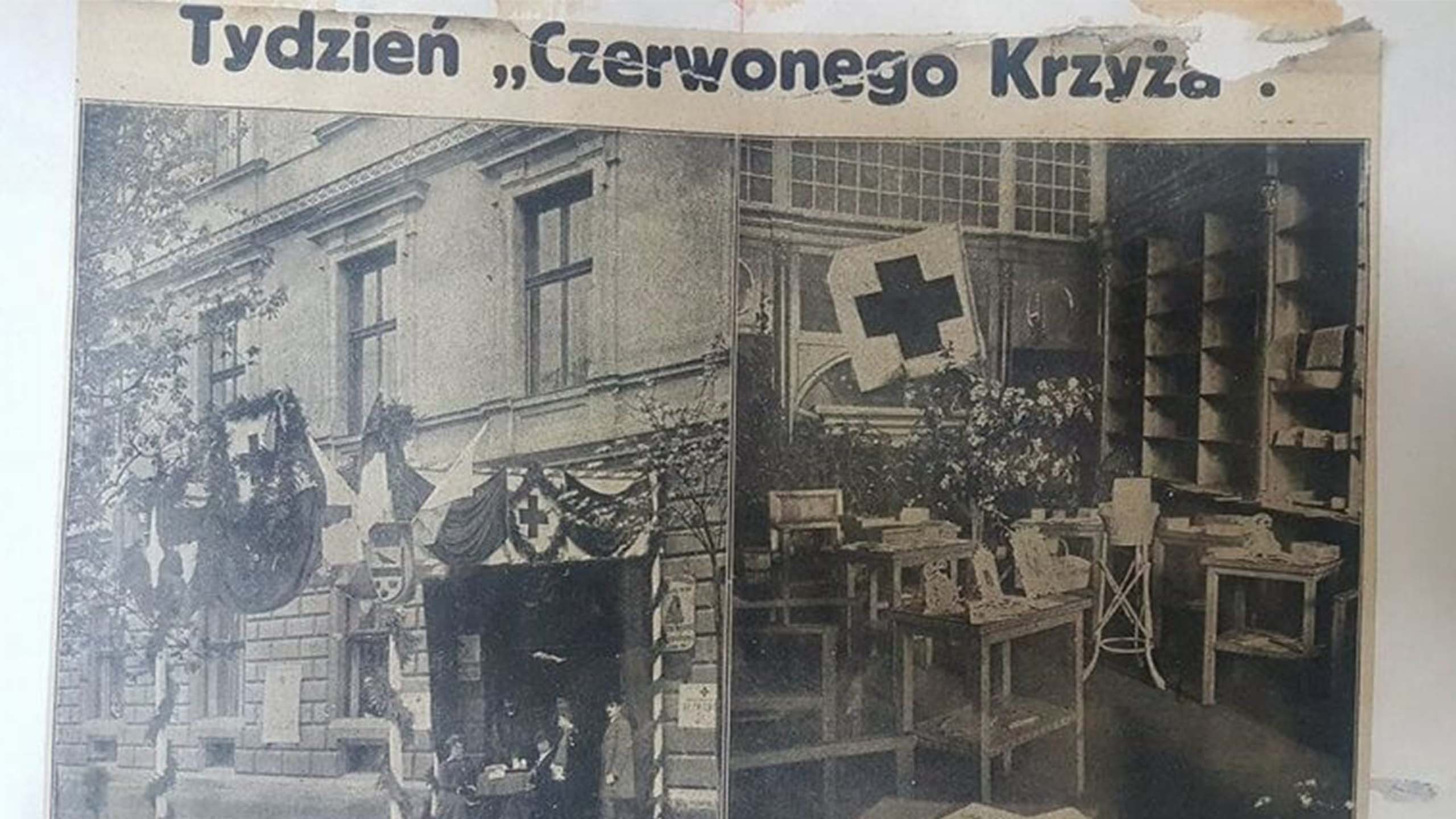
Available historical sources show that the Red Cross Week was already celebrated by the Galician Red Cross Society led by Father Paweł Sapieha. The tradition was borrowed from the celebrations of the Austrian Red Cross.
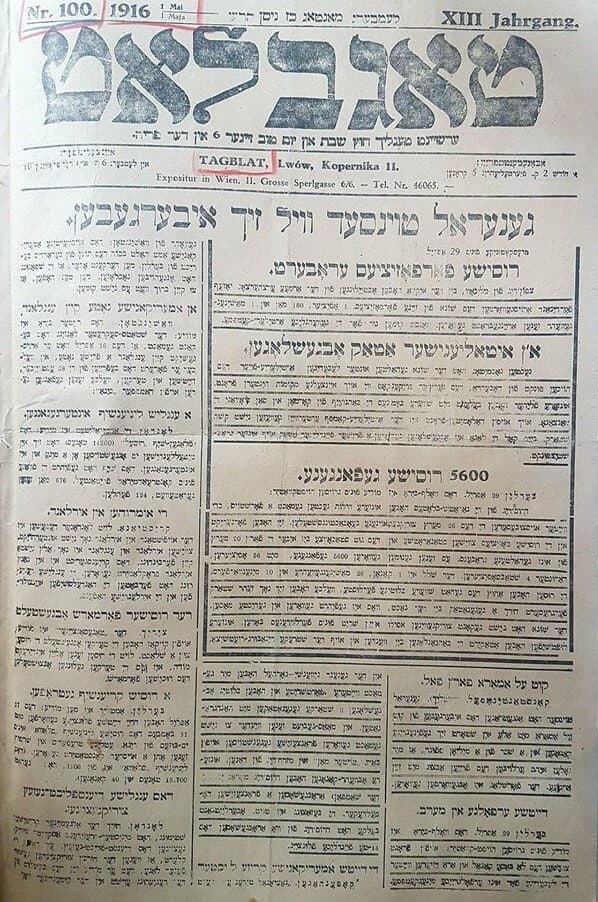
In May, various types of concerts, exhibitions, presentations, and especially collections were organized in many cities in Galicia, particularly in Kraków and Lviv, but also in smaller towns, to raise funds for the activities of the Red Cross. The Red Cross Weeks, in their more than 100-year tradition, usually took place at the beginning of May in connection with the birthday of the founder of the Red Cross movement, H. Dunant. Information about the collection during the Red Cross Week was published by all local newspapers of all denominations. The ceremonies often began with a holy mass in the local church. Collections were organized at special booths set in front of Red Cross offices, in churches, on streets, and in restaurants and cafes, as well as in confectioneries. At the booths, one could also sign up and pay a membership fee to become a member of the organization.
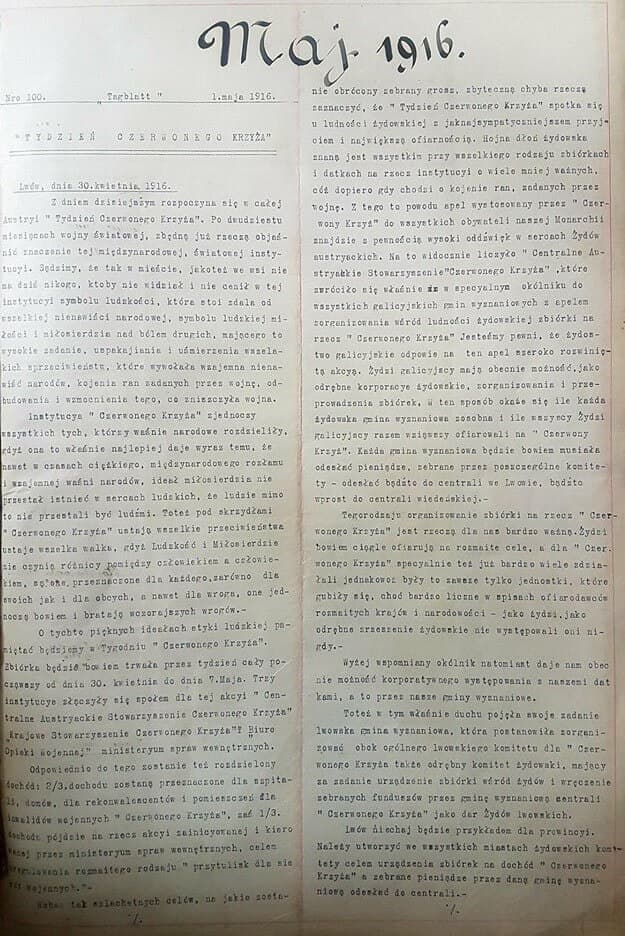
On the city walls, appeals appeared, such as the one from 1916
“To the residents of the royal capital city of Kraków!
The institution of the “Red Cross” that does not intrude upon you in everyday times knocks at your hearts!
Little attention is paid to it in times of peace. When the flames of war engulf our lands, when bloody battles are fought, it goes to the soldier wounded in heroic struggles, offering him a soothing hand. And it takes him to its comfortably arranged trains and wagons, transporting him to hospitals, where doctors and nurses carefully surround him with care. When his strength returns, its sanatoriums provide him with the necessary rest. It alleviates the concern for the fate of the family left at home, soothes the family's pain of separation from the father and provider.
All these tasks and hundreds of others are fulfilled by the “Red Cross Society” without publicity and intrusion, bringing relief from pain, soothing the sufferings of the spirit. And it can boldly be said that there is no family that has not directly or indirectly benefited from the benevolence of this institution, which is dedicated to serving others.
Does it receive even a part of the care it provides from society? […]
In this serious moment for the beautifully humanitarian institution, we, the citizens' committee of the city of Kraków, appeal to you, residents of the royal capital city, to surround the Red Cross Week with the warmth of your feelings that we know from your numerous works, not to spare donations and, cooperating eagerly with us, gather a large number of new members of the Red Cross Society, who, by joining the Galician section, will again prove to the world that our Polish city always leads the way in every active act of neighborly love.
Kraków, April 28, 1916
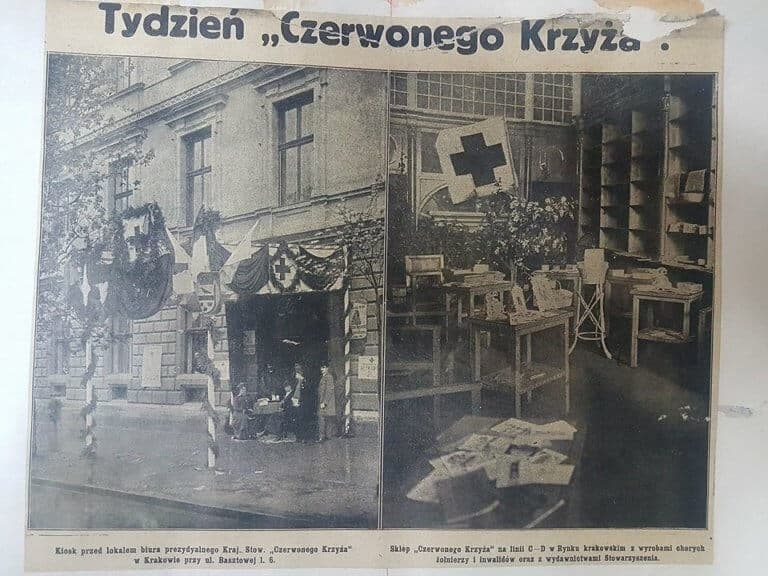
Repeated appeals were also distributed by the school youth, who had even a day off from school on the day of the collection. The youth also had declarations for members of the Red Cross, which they distributed to the residents. The whole was organized by the 'ladies collectors,' that is, the greatly deserving residents of Kraków or Lviv, led by the president's wife. They sat at specially prepared tables set up throughout the city. One could also buy commemorative badges or emblems, “and almost no one was found who did not wear such a badge” (Lviv Gazette, May 2, 1916).
Collections always had a specific purpose. For example, in 1916, we can read in the Daily Courier: “Since inquiries about what purposes the funds raised during this week in Galicia will be used for come from many sides, the Presidential Office of the Red Cross informs as follows…The money collected in Galicia will be used exclusively for domestic purposes, and this in two parts for the Red Cross, while one third will be used for the care of children. Furthermore, during Archduke Francis Salvatore's stay in Galicia, Count Traun, who was with us, stated that a certain part of the collected funds throughout the monarchy will also be transferred for the care of Galician orphans” (Daily Courier, no. 119, May 1, 1916).
Numerous concerts, theatrical and opera performances were organized during which, of course, donations were collected, as well as other attractions such as a bike race.
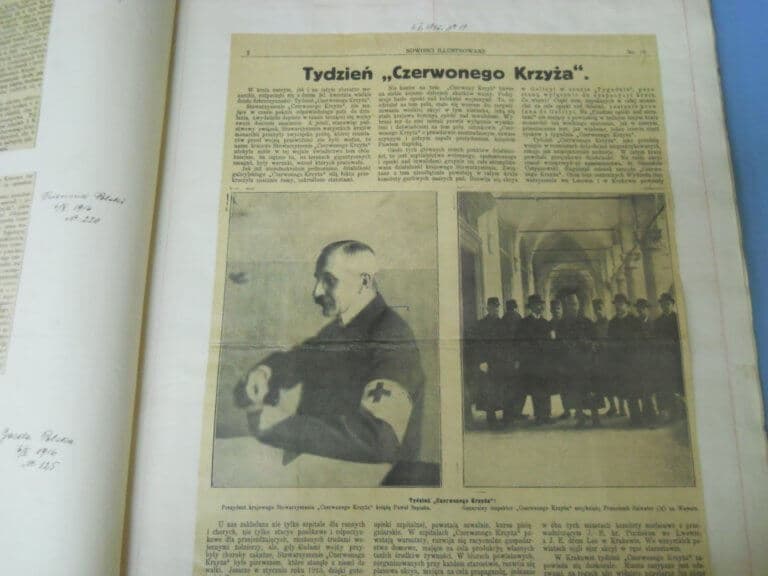
The celebrations of the Red Cross Week were widely reported in the press of the period. There was no daily newspaper that did not cover the events of the celebrations.
Thus, it is not surprising that the scale of the funds raised during the Red Cross Week was impressive, and the number of members of the association was increasing at an express pace.
Facts about the Polish Red Cross
Only after the fourth request to the International Red Cross was the Polish Red Cross recognized on the international stage.
The beginnings of blood donation in the Red Cross date back to 1935, which took place 83 years ago.
If the borders of Poland had not been changed after World War II, the 100th anniversary of the Polish Red Cross (PCK) would have been celebrated with the Lviv, Volhynian, and Wilno branches, which are still active today but under the structures of different state associations.
The employees of the Polish Red Cross carried out the exhumation of Polish officers murdered in the Katyn Forest while also being responsible for creating the official Katyn Lists
The Red Cross movement and its foundations were the source for the establishment of sanitary services for wounded soldiers under the names Polish White Cross and Polish Green Cross.
Over the years, the rules for statutory financing of the PCK's activities have changed, as has our role and position within the state.
The PCK enjoyed immense public trust during the Second Polish Republic, and the most important figures in the state always spoke about our organization with the utmost respect.
To this day, in Tarnów, Małopolska, there is a nearly 100-year tradition of parades through the city organized on the occasion of the Polish Red Cross Week.
On February 8, 2018, it was 50 years since the establishment of the badge of the Honorable Blood Donor
On February 8, 2018, it marked 50 years since the establishment of the badge of the Meritorious Honorary Blood Donor
PCK never accepted any gratifications and did not support the Nazi authorities, thereby exposing itself to severe consequences.
The Polish Red Cross was the initiator of healthcare in rural areas during the interwar period and the establishment of the first village health centers.
PCK was involved in the construction of the Marshal Piłsudski Mound in Sowińca in Krakow in 1936
At the beginning of 1919, within the structures of the newly established Polish Red Cross Society, 3 District Branches of the PTCK were created: for Galicia, the Grand Duchy of Posen, and Silesia.
During its 100-year activity, the Polish Red Cross, the International Committee of the Red Cross, honored 102 Polish nurses associated with our organization with the Florence Nightingale Medal.
The Polish Red Cross was the organizer of parachuting courses
Did two Polish doctors working at the Red Cross hospital during World War II save more lives than Oskar Schindler?
There existed simultaneously the Polish Red Cross and the Polish White Cross, whose president was Helena Paderewska.
There was a time in the history of PCK when, legally, two or even three Main Boards of PCK operated simultaneously.
Help us endlessly
Thanks to the kindness and support of our Donors, we can help children, seniors, support medical rescuers, promote the idea of blood donation, and implement many other projects that save lives in times of conflict or humanitarian crises. Every donation and every form of support is significant because the Polish Red Cross connects those in need with those who want to provide help. Let’s help together!
See also
On February 8, 2018, it has been 50 years since the establishment of the badge of Meritorious Honorary Blood Donor.
Since the beginning, the badges have been issued by the Polish Red Cross, as stated on the certificate "In recognition of the most beautiful humanitarian gift – the selfless donation of blood" and this has not changed over the years.
To this day, there is a nearly 100-year-old tradition of parades through the city organized on the occasion of the PCK Week in Tarnów, Małopolska.
During the interwar period, the Polish Red Cross began its celebrations on June 1st, and there was also a time when the Red Cross Week started on May 26th, on Mother's Day (probably related to the cult of the mother of Józef Piłsudski).
You are currently viewing a page filtered by content from the department. Cała PolskaIf you want to view content from Cała Polskaclick the button